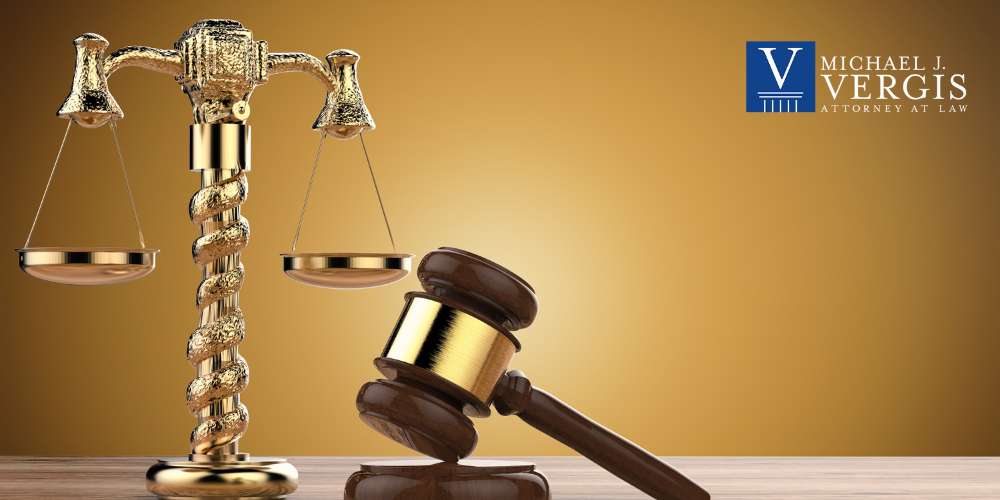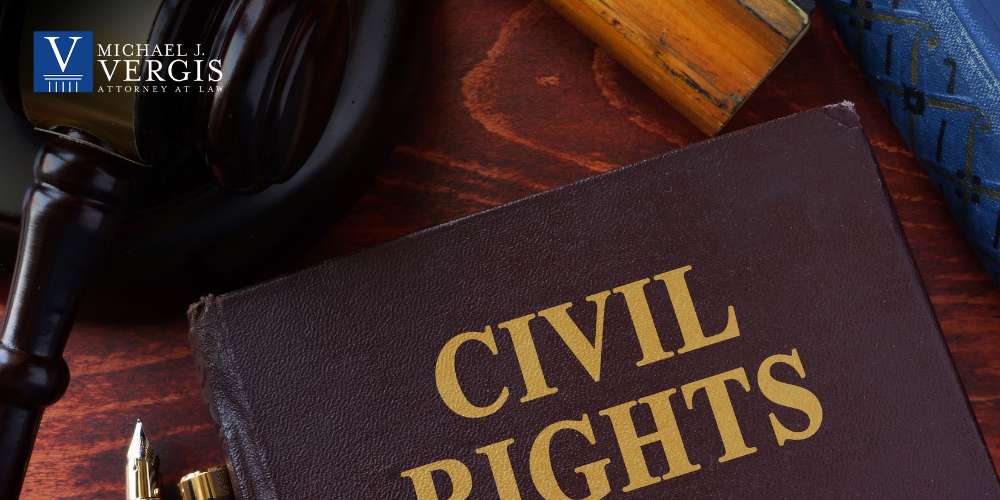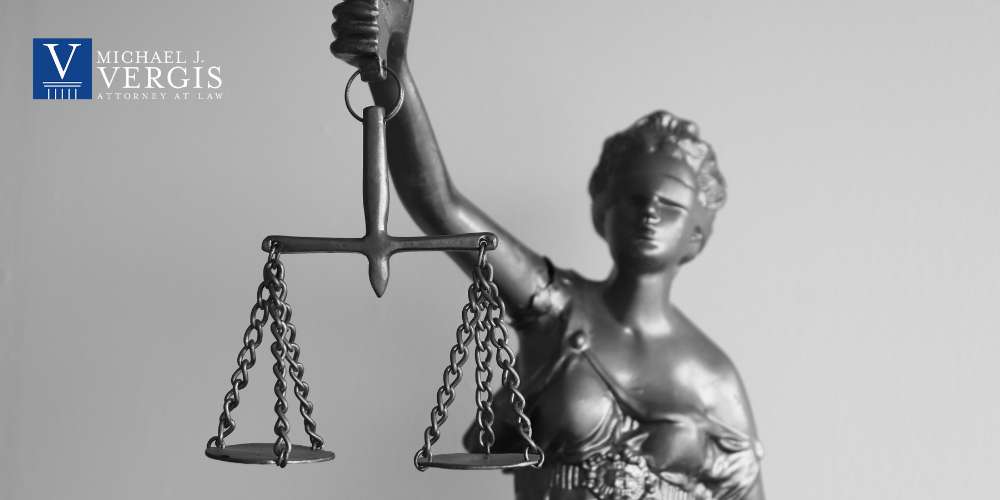CIVIL RIGHTS
Home » Civil Rights
Bossier City / Shreveport Civil Rights Attorney
Experienced Northwest LA Civil Rights Attorney Serving Shreveport, Bossier City, & Beyond
Everyone in the United States has certain rights and privileges guaranteed by law. These rights exist to protect our safety, freedom, and right to live without fear of discrimination. In fact, individual rights and liberties are considered sacred in America and form the foundation of our democracy. Sadly, despite these protections, civil rights violations still happen regularly. Politicians, law enforcement agencies, hate groups, and various other organizations sometimes break these laws, leaving innocent people feeling helpless.

Shreveport civil rights attorney Michael J. Vergis understands how devastating these violations can be. Through his dedicated civil rights practice, he has successfully represented numerous clients across Northwest Louisiana, including Shreveport, Bossier City, and beyond.
If your civil rights have been violated, Michael J. Vergis is ready to stand by your side and fight for justice. Call The Law Office of Michael J. Vergis in Shreveport, Louisiana, at (318) 698-3724 today to schedule your free consultation.
What Kind of Lawyer Fights for Civil Rights?
A civil rights lawyer provides representation for individuals whose rights have been violated, whether they are citizens of the United States or immigrants living in the country. These attorneys are very well-versed in the freedoms guaranteed by our Constitution and can often assist their clients in both civil and criminal cases.
If someone experiences a violation of their civil rights, they have the legal option to file a lawsuit against the responsible individual or organization. In addition to defending their client’s rights through the duration of the case, civil rights attorneys undertake a number of responsibilities. They do case research, write legal documents, present cases in court, and reach settlements, among many other things. They must also stay current on local laws and regulations relating to civil rights, which may change periodically.
To ensure strong, effective representation, it’s important to hire a trusted civil rights lawyer like Michael J. Vergis.
Understanding Your Civil Rights
Civil rights are vital protections designed to shield American citizens from unfair or discriminatory treatment. Based on legally protected characteristics, they encompass the right to equal treatment (free from discrimination) in a variety of settings, including education, employment, housing, public accommodations, and more.
Federal civil rights protections are primarily established through landmark legislation, including:
- Civil Rights Act of 1964
- Voting Rights Act of 1965
- Americans with Disabilities Act (ADA)
- Age Discrimination Act of 1975
- Age Discrimination in Employment Act (ADEA)
- Fair Housing Act (FHA)
- Section 504 of the Rehabilitation Act of 1973
The state of Louisiana mostly relies on federal legislation when it comes to civil rights. However, state law does provide a few additional protections for its citizens concerning discrimination in housing, employment, and people with disabilities. These state protections can be found in the following revised statutes:
If you are facing discrimination or believe your civil rights have been violated, a knowledgeable LA civil rights attorney like Michael J. Vergis can guide you through the legal process during this time.

Common Civil Rights Violations
There is a realm of ways in which someone’s rights may be violated, thus requiring them to obtain legal help. A few examples of common civil rights violations include:
- Unlawful Search and Seizure
- Police Brutality or Excessive Force
- False Arrest or Wrongful Imprisonment
- Employment Discrimination
- Housing Discrimination
- Discrimination in Education
- Voting Rights Violations
- Freedom of Speech or Assembly Violations
- Denial of Due Process
- Cruel and Unusual Punishment
Cases Our Shreveport-Bossier Civil Rights Lawsuit Lawyers Handle
With the resources, experience, and unwavering dedication needed to stand up against powerful institutions, our criminal defense lawyers at The Law Office of Michael J. Vergis have helped a number of clients seek justice and accountability when their constitutional rights were violated.
Police Brutality
Police brutality occurs when law enforcement officers use excessive or unreasonable force during arrests, stops, or other interactions with the public. This may involve physical violence, unlawful use of weapons, or verbal abuse, and it violates an individual’s civil rights protected under the U.S. Constitution, particularly the Fourth and Fourteenth Amendments. Shreveport police brutality lawyer Mike Vergis helps victims hold officers and departments accountable for these abuses and pursue justice through civil rights claims.
Hate Crimes
Hate crimes are criminal acts motivated by bias against a person’s race, religion, national origin, gender, sexual orientation, or other protected characteristic. These offenses are not only crimes against individuals—they are also violations of civil rights, as they target and intimidate entire communities based on identity.
Sexual Assault
Sexual battery in Louisiana involves unwanted or non-consensual touching of another person’s intimate parts and is a serious criminal offense. When committed by a government actor, such as a law enforcement officer or correctional staff, it can also serve as the basis for a civil rights lawsuit under federal law.
Cruel and Unusual Punishment
Cruel and unusual punishment refers to inhumane or excessive treatment of individuals in the criminal justice system, such as physical abuse, denial of medical care, or extreme prison conditions. This type of mistreatment violates a person’s civil rights under the Eighth Amendment of the U.S. Constitution, which protects against punishment that is degrading or disproportionate.
Search and Seizure Violations
Illegal search and seizure occurs when law enforcement conducts a search of your person, home, vehicle, or belongings without a valid warrant, probable cause, or your consent. This violates your Fourth Amendment rights, which protect against unreasonable government intrusion.
At The Law Office of Michael J. Vergis, our skilled illegal search and seizure lawyers in Louisiana can help challenge unlawfully obtained evidence and fight to protect your constitutional rights.
Use of Excessive Force
The use of excessive force occurs when law enforcement officers apply more physical force than necessary to control a situation or make an arrest. This violates a person’s civil rights under the Fourth Amendment, which protects individuals from unreasonable seizures and guarantees the right to be free from abusive treatment by government officials.

When to File a Civil Rights Lawsuit
Civil rights lawsuits can occur for many different reasons. It is also important to note that there are numerous directions a civil rights claim can take, foreseen and unexpected. This may include a violation of rights from the workplace, housing, education, law enforcement, and more.
For example, you could have a civil rights case that focuses on employment law. Title VII of the Civil Rights Act of 1964 states that an employer may not discriminate with respect to any term, condition, or privilege of employment against an employee for their race, skin color, national origin, sex (pregnancy, sexual orientation, gender identity), disability, or religion.
Regardless of your type of case, it is vital to have representation that is well-versed in state and federal law, has the experience to handle complex situations, and truly cares about achieving justice on your behalf.
Louisiana Civil Rights Attorney FAQs
What Should I Do If My Civil Rights Have Been Violated?
Just because you feel as though someone violated your rights, this does not always mean they violated your civil or protected rights from a legal standpoint. When determining if you have a viable civil rights case, the first thing you must ask yourself is whether there has been a clear and legal violation of one or more of your protected rights. These rights work to protect you from unlawful discrimination on the basis of things like race, sex, age, disability, national origin, etc.
If someone has violated one of these protected rights, you likely have a civil rights case on your hands. There are a few things you should do next. First, consult with a Shreveport civil rights attorney like Michael Vergis to know for certain if you have a legal case. If it is confirmed that you have a viable civil rights case, you have a few options regarding your next move: settling the dispute through informal negotiations, submitting a government claim, or initiating private legal action.
Do I Have a Civil Rights Claim?
There is no absolute answer for this. A case’s strength is determined based on a unique set of circumstances, including evidence and state-specific laws. Finding out if you have a case typically requires a consultation with an attorney who is experienced in civil law. By reviewing your claim, Attorney Michael J. Vergis will determine whether you may have a viable case and help you explore all potential legal options.
How Do I File a Civil Rights Complaint in Louisiana?
If you have a civil rights complaint you would like to launch in the state of Louisiana, you can lodge the complaint with the Louisiana Commission on Human Rights (LCHR) or file a lawsuit through your lawyer.
If you would like to file a complaint of discrimination with the LCHR, you may do so by:
- Phone: (225) 342-6969
- Mail: Office of the Governor, Louisiana Commission on Human Rights, P.O. Box 94094, Baton Rouge, LA 70804
- In-person at 1001 N. 23rd Street, Baton Rouge, LA 70802
- Online here.
If your eligibility is approved after meeting all deadlines, an investigator will examine the merit determination and recommendation. The results of this will be given to you and the respondent and in some cases, the US Equal Employment Opportunity Commission (EEOC). At this point, remedial action will be discussed and available for any employment discrimination, which could include lost pay, promotions, front pay, reinstatement, and reasonable accommodations.
If there is no violation of the statute discovered by the LCHR and by the EEOC, you will be given the right to sue. This is where the services of Michael J. Vergis will be the most valuable to you. For further explanation or clarification, please do not hesitate to contact us regarding your LA civil rights claim.
What is the Statute of Limitations for a Louisiana Civil Rights Claim?
In the state of Louisiana, civil rights claims (as well as most civil actions) must be brought within one year, according to the Louisiana statute of limitations.
Federal law provides a different statute of limitations, which allows seven years for a civil rights claim to be brought within federal courts. However, the seven-year time frame only applies to cases that did not result in death. Cases that led to the wrongful death of another individual have no time limit.
Do I Need a Louisiana Civil Rights Violations Attorney?
The truth is, most people are not familiar with the complicated nature of civil rights law, at least not without a legal background. Without a civil rights attorney, you may find that your attempt to sue another person for a civil rights violation is met with a less than favorable outcome. As a result, you may not receive the settlement that you deserve or even any settlement at all. It can be extremely hard to prove there’s been a violation of your civil rights, but a reputable attorney can significantly increase your chances of winning the case.
When you need a civil rights lawyer, it is because you need the legal assistance of someone with the knowledge and dedication to protect the rights afforded by the Constitution to all individuals, minorities, and businesses. They should have the drive and resources to make sure that the defendant will be held accountable for their wrongdoings and that their client will achieve justice.
How Can a Shreveport, Louisiana Civil Rights Attorney Help?
Having a dedicated Shreveport civil rights attorney significantly improves your chances of achieving justice and securing appropriate settlements for violations of civil rights. The committed team at The Law Offices of Michael J. Vergis, a general practice law firm, provides the highest possible care in defending clients’ rights across numerous practice areas. If your rights have been violated, contact our office today to schedule a confidential consultation with our dedicated civil rights lawyer and explore your legal options.

Additional Practice Areas We Handle
Our experienced Louisiana legal team is ready to represent clients in a variety of legal matters, from civil and municipal law to personal injury, family law, and criminal defense. When represented by Michael J. Vergis, you have a lawyer committed to achieving the best possible resolution for you.
Personal Injury and Wrongful Death
In addition to civil rights, Michael Vergis is a skilled personal injury lawyer in Shreveport/Bossier City who provides compassionate legal representation for victims of serious accidents and wrongful death. He works tirelessly to help clients recover compensation for medical expenses, lost wages, and emotional suffering caused by someone else’s negligence or misconduct.
Family Law
Michael Vergis is also an experienced North Louisiana family law attorney who offers trusted legal guidance in matters such as divorce, child custody, support, and property division. Whether through negotiation or litigation, he is committed to protecting his clients’ rights and helping families reach fair and lasting solutions.
Criminal Defense
As a seasoned Shreveport criminal defense attorney, Michael Vergis provides aggressive and strategic representation for clients facing a wide range of charges, from misdemeanors to serious felonies. He diligently challenges the prosecution’s case, protects his client’s rights, and pursues the best possible outcome at every stage of the legal process.
Call Shreveport Civil Rights Lawyer Michael J. Vergis for a Free Consultation Today
If your rights have been violated in Northwest Louisiana, don’t wait to get the legal help you need. Explore our full range of services on our website or contact Michael J. Vergis, a trusted Shreveport, LA civil rights attorney for more information.
Simply call (318) 698-3724 or complete our online intake form to schedule a free consultation today.


